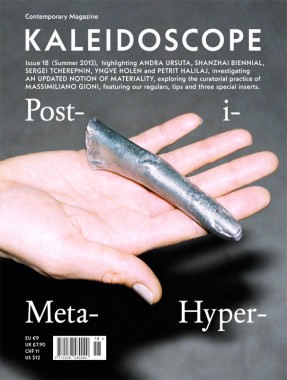
KALEIDOSCOPE Magazine 18 — Summer 2013
Softcover, 228 pp. + three special inserts, offset 4/4, 220 x 287 mm
English edition
ISSN 2038-4807
Published by KALEIDOSCOPE Press
$12.00 ·
KALEIDOSCOPE Issue 18 (summer 2013), highlighting Andra Ursuta, Shanzhai Biennial, Sergei Tcherepnin, Yngve Holen and Petrit Halilaj; investigating an updated notion of materiality; exploring the curatorial practice of Massimiliano Gioni; featuring our regulars, tips, and three special inserts.
HIGHLIGHTS
The issue’s opening section of HIGHLIGHTS features Andra Ursuta, whose practice is understood by Joanna Fiduccia as committed to annihilating sculpture’s distance from our world; the fashion-label-cum-art-project Shanzhai Biennial, whose tangible products, explains Kevin McGarry, are eclipsed by their collateral evidence; Sergei Tcherepnin, described by Lawrence Kumpf as creating a complex system of bodily configurations and social situations; Yngve Holen, whose works are read by Pablo Larios as sentient beings concerned with frustrated circulation, technological growth and associative networking; and Petrit Halilaj whose practice is framed by Elena Filipovic as rejecting pathos in favor of an intimate and critical inflection of the political.
MAIN THEME
This section, titled Post-i-Meta-Hyper-Materiality, brings together a substantial group of artists who introduce the concept of emotional and bodily alienation within the discourse dominated by the readymade, corporate art pursued by many of their digital-native peers. The elusive sculptural works of Nicholas Deshayes, Steve Bishop, Marlie Mul, Magali Reus, Ben Schumacher and Alice Channer are framed by Karen Archey as deeply engaged with materiality and production processes and imbued with bodily allusions, while also commenting on issues of abstraction, dispersion, consumption and technology. A visual essay curated by fashion futurologist Veronica So reveals how, from sculptures designed by digital simulations to edible candies formed by human body scans, the appearance of 3D printing kicks off a range of playful experiments with technology and originality. Also in this section, Alice Channer talks to Rebecca Geldard about the starting point of each work, which she describes as “a moment of material seduction”; and artists Pamela Rosenkratz and Alisa Baremboym discuss physicality versus technology and the shifting boundaries between our bodies and the external world in a cross-interview by Ruba Katrib.
MONO
Comprising an essay by Jonathan Griffin, an interview by Francesco Manacorda and a photographic portrait by Ari Marcopoulos, this issue’s MONO is devoted to the Director of the International Art Exhibition at this year’s Venice Biennale, Massimiliano Gioni. Pragmatic bordering on opportunistic throughout his adventurous career, and yet described as “a hopeless romantic” by one of his most affectionate colleagues, Gioni states that his own failure to understand is what fuels his interest in art. Generally averse to chronological or historically comprehensive presentations and departing from the tautology of the masterpiece, he is instead a proponent of Outsider and self-taught art. His exhibitions, which he defines as products of a collective intelligence, are often concerned with the position of art within our image-based society, as well as the sites of an exploration of interior worlds, dream states and psychological visions.
REGULARS
Finally, it this issue’s REGULARS, Hans Ulrich Obrist and Simon Castets interview emerging artist Amalia Ulman; Gary Carrion-Murayari stages a three-way interview with Valentin Carron and Isabelle Cornaro; Felix Burrichter meets design critic Alice Rawsthorn; Leung Chi Wo, David Clarke and Lam Tung-pang engage in a round table about the art scene in Hong Kong then and now; finally, Laura McLean-Ferristraces the legacy of folk in British contemporary art from the exhibition Black Eyes and Lemonade to the practice of Jeremy Deller.
SPECIAL INSERTS
The edition is enriched by our seasonal TIPS on following, reading, listening, stopping by, meeting and visiting; as well as by three SPECIAL INSERTS, including a selection of paintings by Benjamin Senior, photographs by Jochen Lempert and collages by Sterling Ruby.
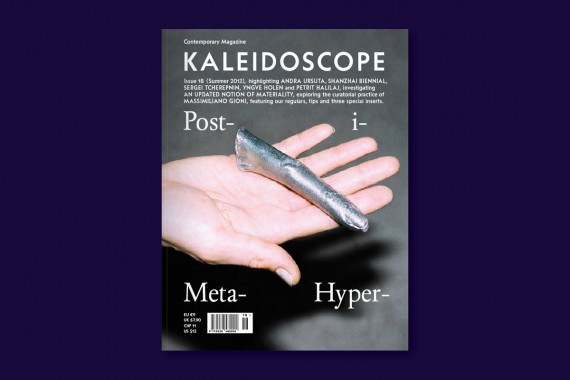
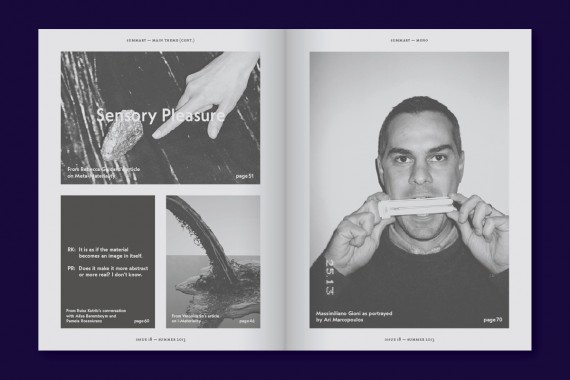

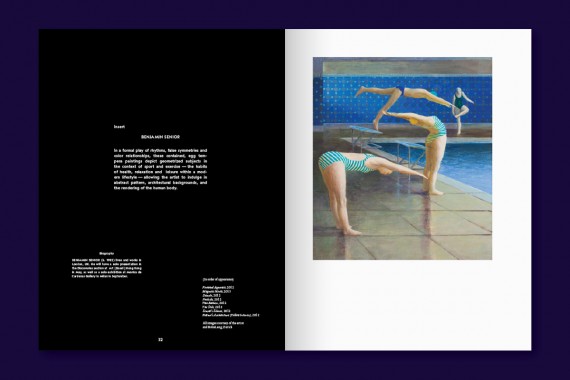
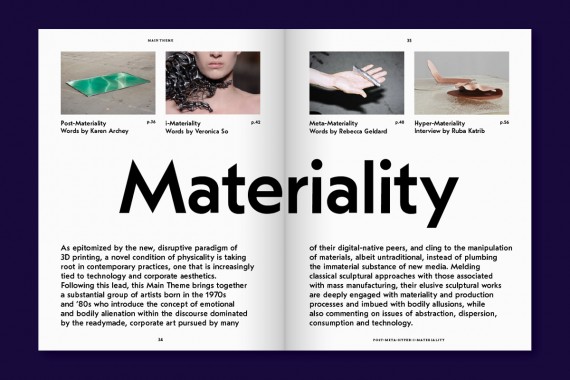
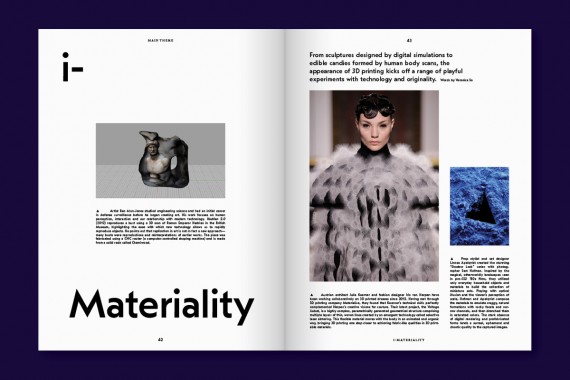
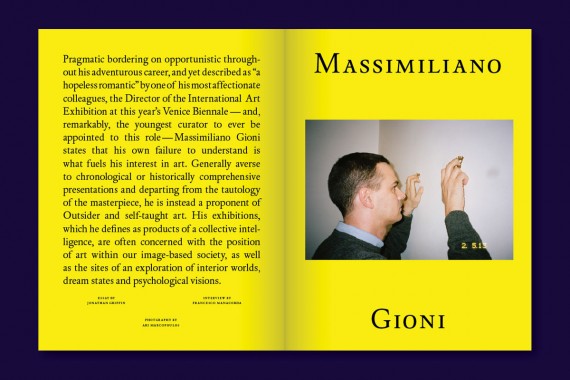
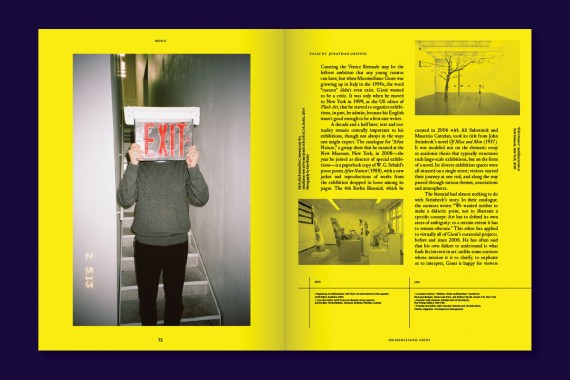
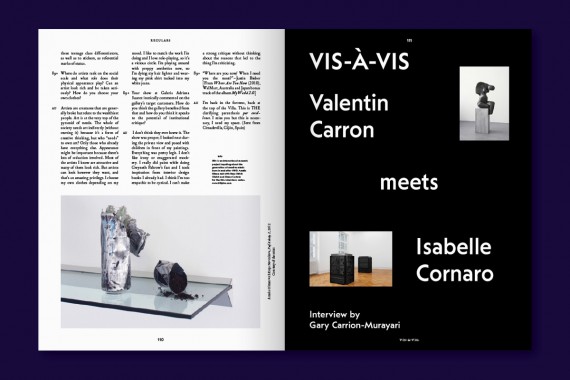
Alice Channer, Alice Rawsthorn, Alisa Baremboym, Amalia Ulman, amela Rosenkratz, Andra Ursuta, Ari Marcopoulos, Art, Ben Schumacher, Benjamin Senior, Culture, David Clarke, Distribution, Elena Filipovic, Felix Burrichter, Francesco Manacorda, Gary Carrion-Murayari, Hans Ulrich Obrist, Isabelle Cornaro, Jeremy Deller, Joanna Fiduccia, Jochen Lempert, Jonathan Griffin, KALEIDOSCOPE Press, Karen Archey, Kevin McGarry, Lam Tung-pang, Laura McLean-Ferristraces, Lawrence Kumpf, Leung Chi Wo, Magali Reus, Marlie Mul, Massimiliano Gioni, Nicholas Deshayes, Pablo Larios, Petrit Halilaj, Rebecca Geldard, Ruba Katrib, Sergei Tcherepnin, Shanzhai Biennial, Simon Castets, Sterling Ruby, Steve Bishop, Valentin Carron, Veronica So, Yngve Holen
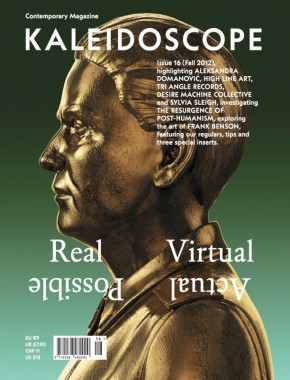
KALEIDOSCOPE Magazine 16 — Fall 2012
Softcover, 210 pp. + Ken Price Drawings insert, offset 4/4, 220 x 287 mm
ISSN 2038-4807
Published by KALEIDOSCOPE Press
$12.00 ·
At the core of a platform that includes an exhibition space and an independent publishing house, KALEIDOSCOPE is an international quarterly of contemporary art and culture founded in 2009 in Milan. Distributed worldwide on a seasonal basis, it has gained widespread recognition as a trusted and timely guide to the present (but also to the past and possible futures), unique in its interdisciplinary and unconventional approach.
HIGHLIGHTS
This issue’s opening section features Aleksandra Domanovic, whose videos and sculptures are seen by Pablo Larios as embodiments of the perpetually productive disunion of politics and art; the ambitious public art program of New York’s High Line, described by Piper Marshall as one that confronts artists with many challenges; the record label Tri Angle, whose founder Robin Carolan talks to Ruth Saxelby about how to embody the zeitgeist of electronic music; the Indian duo Desire Machine Collective, who discuss with Sandhini Poddar and Ulrich Baer about mapping an experimental history of colonization; and American painter Sylvia Sleigh, whose elusive politics is contrasted by Joanna Fiduccia to the detailed realism of her portraits.
MAIN THEME
The blend of cybernetics and underground culture realized in the symbolic and mythological repertoire of Cyberpunk continues to inspire sci-fi narratives and permeate the arts, reinforcing its status as a powerful aesthetic. This issue examines the emergence of an art that addresses the processes of mechanization, desexualisation and reification of the human body, and how they relate to questions of identity, morality and fantasy. Featured contributions include Michele D’Aurizio’s overview of the work of a new generation of artists; Karen Archey’s analysis of the work of Canadian artist David Altmejd; a discussion between Brody Condon and Jason Brown coordinated by DIS magazine; and a conversation between young artist Timur Si-Qin and influential philosopher Manuel De Landa.
MONO
Comprising an essay by Alessandro Rabottini, an interview by Matt Keegan and a photographic portrait by Grant Willing, this issue’s MONO is devoted to American artist Frank Benson, whose work rides the dialectic between the space of the photographic image and the space of sculpture. Evoking celebrated artists like Charles Ray, Jeff Koons and Robert Gober, Benson uses the latest technology available and yet imbues the sculptural process with a profound understanding of physical materiality — making works that oscillate between analogue and digital, solidity and suspension, humor and elegance.
REGULARS
Hans Ulrich Obrist interviews the New York-based provocateur Liz Magic Laser; Dorothée Dupuis introduces the hidden life of Marseille; Luca Cerizza analyzes the emotional topography of Alberto Garutti; and Carson Chan meets the DAAD’s visual arts director Ariane Beyn. The edition is enriched by our seasonal tips on following, reading, listening, stopping by, meeting and visiting; as well as by three special inserts — drawings by Ken Price, stickers by Alistair Frost and images by Alistair Frost.
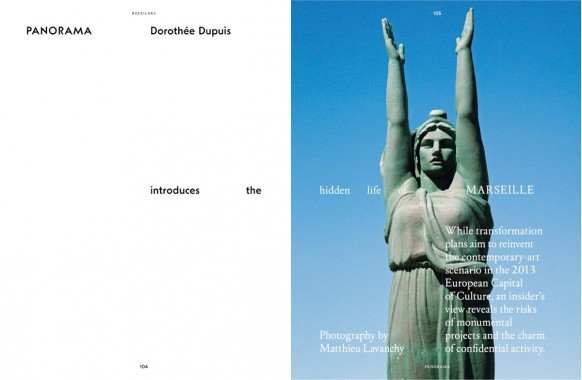
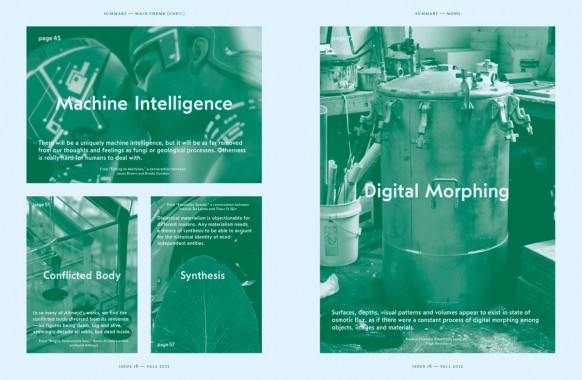
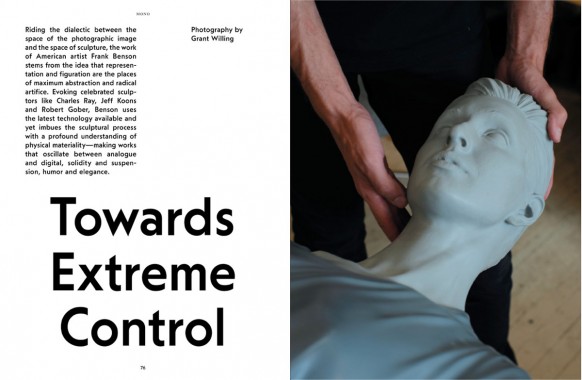
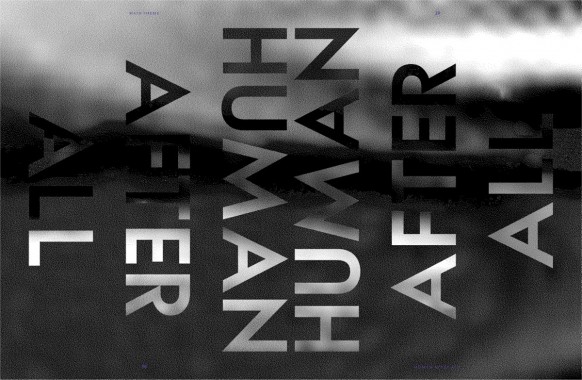
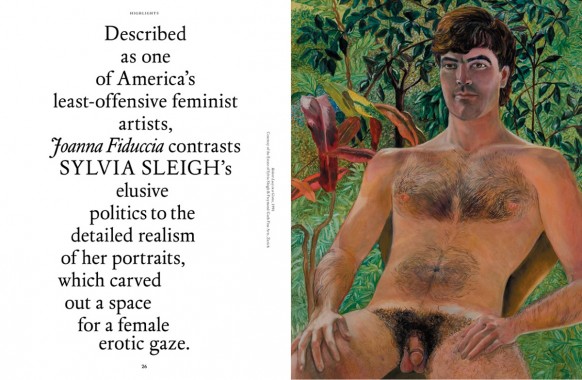
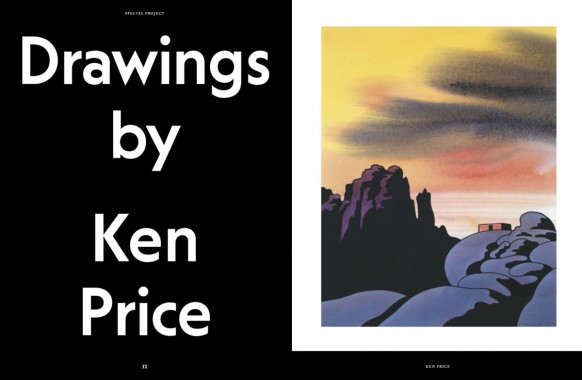
Alberto Garutti, Aleksandra Domanovic, Alessandro Rabottini, Alistair Frost, Ariane Beyn, Art, Brody Condon, Carson Chan, Charles Ray, Cyberpunk, David Altmejd, Desire Machine Collective, DIS Magazine, Distribution, Dorothée Dupuis, Drawing, Frank Benson, Grant Willing, Hans Ulrich Obrist, Jason Brown, Jeff Koons, Joanna Fiduccia, KALEIDOSCOPE Press, Karen Archey, Ken Price, Liz Magic Laser, Luca Cerizza, Manuel De Landa, Matt Keegan, Michele D'Aurizio, Pablo Larios, Piper Marshall, Robert Gober, Robin Carolan, Ruth Saxelby, Sandhini Poddar, Sculpture, Sylvia Sleigh, Timur Si-Qin, Tri Angle, Ulrich Baer
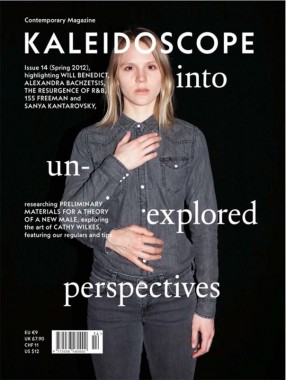
KALEIDOSCOPE Magazine 14 — Spring 2012
Softcover, 168 pp., offset 4/4, 220 x 287 mm
ISSN 2038-4807
Published by KALEIDOSCOPE Press
$12.00 ·
At the core of a platform that includes an exhibition space and an independent publishing house, KALEIDOSCOPE is an international quarterly of contemporary art and culture founded in 2009 in Milan. Distributed worldwide on a seasonal basis, it has gained widespread recognition as a trusted and timely guide to the present (but also to the past and possible futures), unique in its interdisciplinary and unconventional approach.
HIGHLIGHTS
Will Benedict by Alex Kitnick; Alexandra Bachzetsis by Catherine Wood; 155 Freeman by Chris Wiley; The Resurgence of R&B by Tim Small; Sanya Kantarovsky by Joanna Fiduccia.
MAIN THEME — Preliminary Materials for a Theory of a New Male Camp + Dandyism = Neo-Camp? by Chris Sharp; Domenico Gnoli by Giorgio Verzotti; Marc Camille Chaimowicz Partial Eclipse; A Fantastic, Single, Mad Man by Alessio Ascari and Cristina Travaglini.
MONO — Cathy Wilkes
Essay by Rebecca Geldard; Essay by Amy Budd; Special Project by Cathy Wilkes; Focus by Isobel Harbison.
REGULARS
Pioneers: Monir S. Farmanfarmaian by Simone Menegoi; Futura: Adrian Villar Rojas by Hans Ulrich Obrist; Panorama: Mexico City by Magnolia de la Garza; Souvenir d’Italie: Alighiero Boetti by Luca Cerizza; Producers: Gavin Brown by Carson Chan.
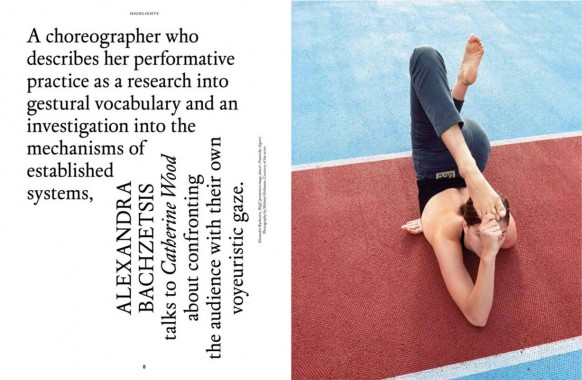
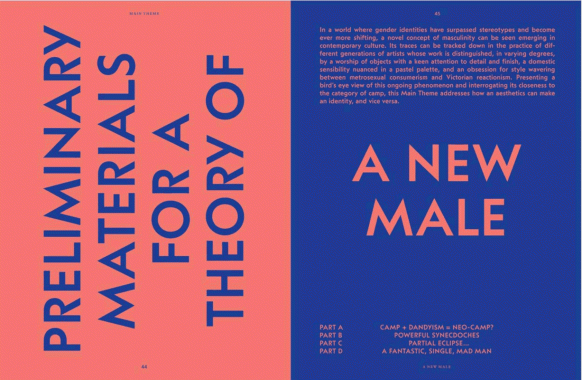
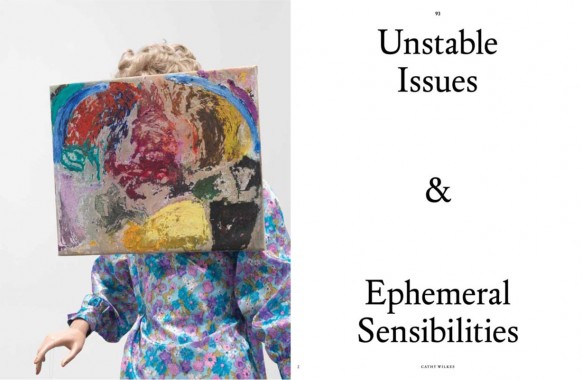
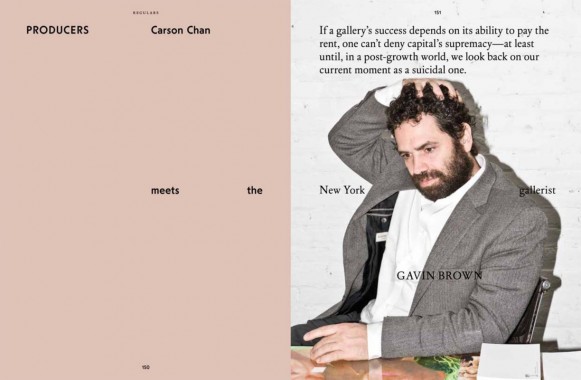
Adrian Villar Rojas, Alessio Ascari, Alex Kitnick, Alexandra Bachzetsis, Alighiero Boetti, Amy Budd, Art, Carson Chan, Catherine Wood, Cathy Wilkes, Chris Sharp, Chris Wiley, Cristina Travaglini, Culture, Distribution, Domenico Gnoli, Gavin Brown, Giorgio Verzotti, Hans Ulrich Obrist, Isobel Harbison, Joanna Fiduccia, KALEIDOSCOPE Press, Luca Cerizza, Magnolia de la Garza, Marc Camille Chaimowicz, Monir S. Farmanfarmaian, Rebecca Geldard, Sanya Kantarovsky, Simone Menegoi, Tim Small, Will Benedict
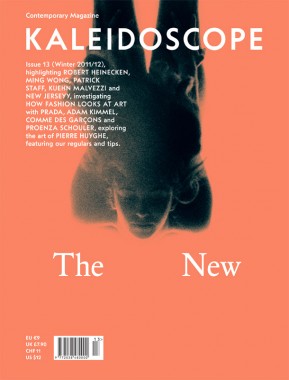

Kaleidoscope Magazine 13, The New
Softcover, 262 pp., offset 4/4, 220 x 287 mm
Softcover, 48 pp., offset 4/4, 190 x 270 mm [Georges Tony Stoll supplement]
ISSN 2038-4807
ISBN 978-88-97185-18-5
Published by Kaleidoscope Press
$12.00 ·
At the core of a platform that includes an exhibition space and an independent publishing house, Kaleidoscope is an international quarterly of contemporary art and culture founded in 2009 in Milan. Distributed worldwide on a seasonal basis, it has gained widespread recognition as a trusted and timely guide to the present (but also to the past and possible futures), unique in its interdisciplinary and unconventional approach.
For the Winter 2011/12, editor-in-chief Alessio Ascari is proud to present the first issue of Kaleidoscope magazine under the art direction of the prominent London-based design studio OK-RM — Oliver Knight and Rory McGrath.
HIGHLIGHTS
Robert Heinecken by Kavior Moon; Ming Wong by Hu Fang; Kuehn Malvezzi by Hila Peleg; New Jerseyy by Quinn Latimer; Patrick Staff by Catherine Wood.
MAIN THEME — How Does Fashion Look at Art?
Adam Kimmell by Angelo Flaccavento; Commes des Garçons by Maria Luisa Frisa; Proenza Schouler by Michele D’Aurizio.
MONO — Pierre Huyghe
Essay by Éric Troncy; Interview by Barbara Casavecchia; Special Project: Study for Zoodram; Focus by Chris Wiley.
REGULARS
Pioneers: Bruce McLean by Simone Menegoi; Futura: Ed Atkins by Hans Ulrich Obrist; Panorama: Toronto by Amil Niazi; Souvenir d’Italie: Luigi Ghirri by Luca Cerizza; Producers: Ute Meta Bauer by Carson Chan.
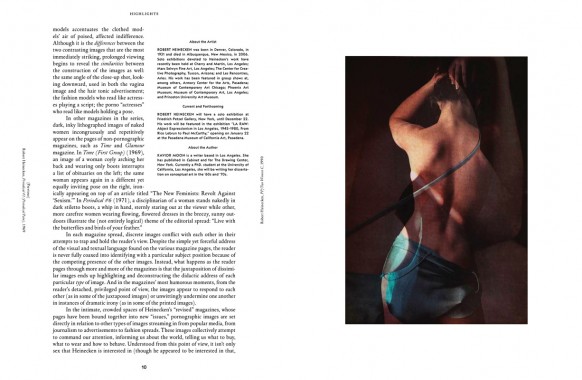
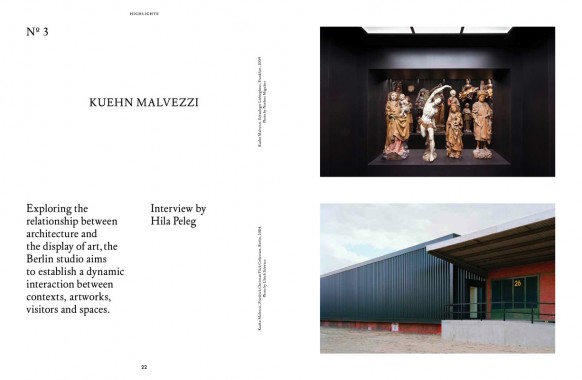
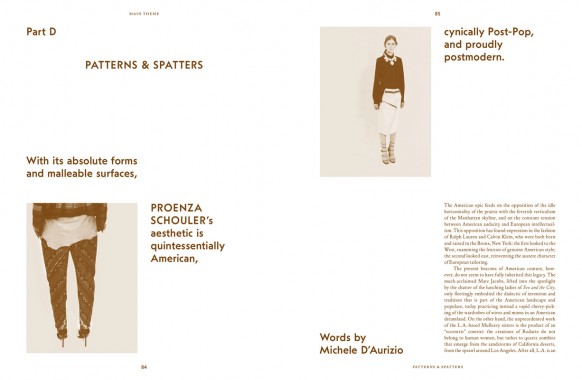
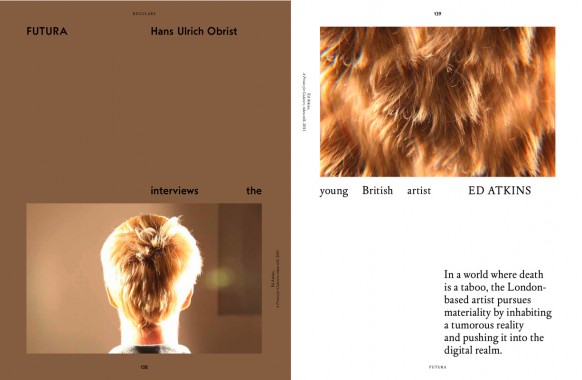
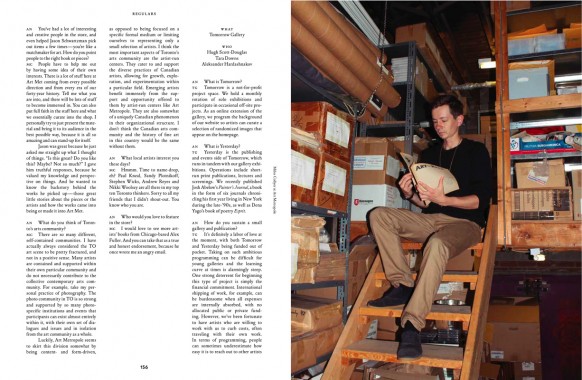
Adam Kimmell, Alessio Ascari, Aliina Astrova, Amil Niazi, Angelo Flaccavento, Art, Barbara Casavecchia, Bruce McLean, Carson Chan, Catherine Wood, Chris Wiley, Commes des Garçons, Cristina Travaglini, Culture, Distribution, Ed Atkins, Éric Troncy, Francesco Vezzoli, Georges Tony Stoll, Hans Ulrich Obrist, Hila Peleg, Hu Fang, Joanna Fiduccia, KALEIDOSCOPE Press, Kavior Moon, Klingspor, Kuehn Malvezzi, Laurenz Brunner, Luca Cerizza, Luigi Ghirri, Maria Luisa Frisa, Michele D'Aurizio, Ming Wong, Nicholas Cullinan, OK-RM, Oliver Knight, Patrick Staff, Photography, Pierre Huyghe, Proenza Schouler, Quinn Latimer, Robert Heinecken, Rory McGrath, Simone Menegoi, Ute Meta Bauer




























